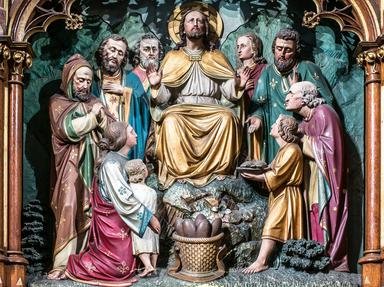Quiz Answer Key and Fun Facts
1. She rescued David from her own father. She passionately loved David.
2. Her first husband, Nabal, was quite possibly abusive to her.
3. She was the mother of David's firstborn, Amnon.
4. She was the mother of Absalom and Tamar.
5. She was Adonijah's mother. Her name looks similar to the words for an old, unattractive woman and a Scottish dish made of sheep's body parts.
6. She was the mother of Shephatiah. Don't confuse her name with those of Nabal's ex-wife or David's caregiver.
7. She was Ithream's mother.
8. His initial relationship with her was based on lust, until a pregnancy occurred.
9. She wasn't exactly David's wife, at least not in the regular sense, since they didn't "know" each other like that, but she was still considered part of his harem.
10. She almost became David's first wife, but her younger sister revealed her love for him.
Source: Author
Ceduh
This quiz was reviewed by FunTrivia editor
looney_tunes before going online.
Any errors found in FunTrivia content are routinely corrected through our feedback system.
